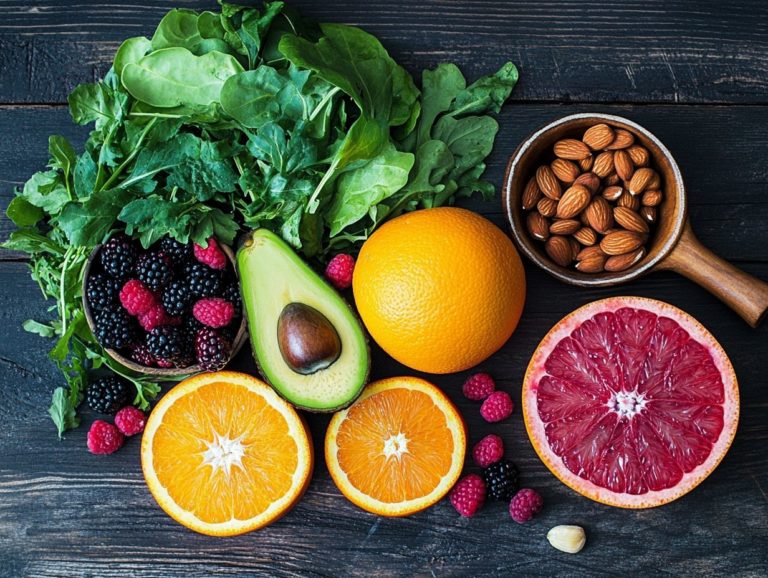All About Protein: Types, Sources, and Benefits
Protein is an essential nutrient that significantly affects muscle growth and immune function. Its significance cannot be overstated; adequate protein intake is crucial for sustaining muscle mass, regulating body weight, and preventing protein deficiency all of which can influence health issues such as cardiovascular disease and diabetes.
Understanding protein quality and absorption helps you make informed dietary choices that align with nutritional guidelines established by reputable institutions like the National Academy of Medicine and the Harvard Chan School of Public Health.
These amino acids are the building blocks of protein, essential for producing hormones, enzymes, and other life-sustaining molecules. The quality of protein, which is how well it provides the amino acids your body needs, greatly affects how efficiently your body can utilize it.
For example, animal sources typically provide complete proteins, containing all the essential amino acids, while many plant-based proteins may lack one or more, making it important to eat a variety of protein sources.
Recommended daily allowances recommend varying protein intake tailored to your age, gender, and activity levels to ensure adequate muscle maintenance and metabolic health. Insufficient protein intake can lead to serious health complications, such as weakened immunity and compromised muscle function, highlighting the necessity for a balanced nutrition plan that meets your individual health needs.
Contents
Types of Protein
Proteins can be classified into different categories, focusing on the important distinction between complete and incomplete proteins, both of which are crucial for fulfilling your body s protein requirements.
Complete proteins, typically sourced from animal products like meat, poultry, fish, eggs, and dairy, provide all essential amino acids that your body needs. In contrast, incomplete proteins, usually derived from plant-based sources such as legumes, nuts, quinoa, and tofu, may lack one or more of these essential amino acids.
Key Takeaways:
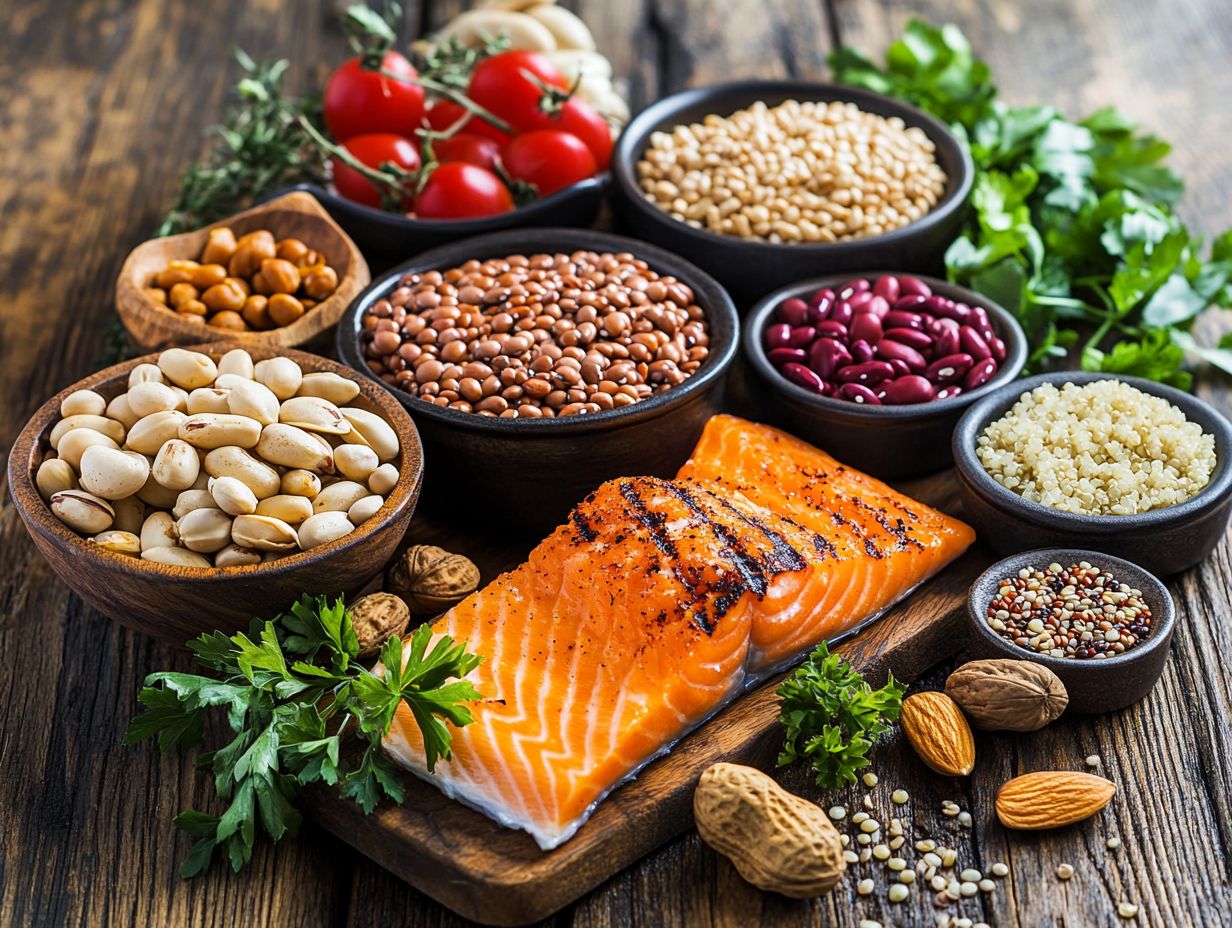
- Protein is vital for your body. It comes in two forms: complete and incomplete.
- Animal sources are high in complete proteins, while plant sources offer additional nutrients and fiber.
- You ll discover that protein offers incredible benefits for your health, such as building and repairing muscles and aiding in weight management.
What is Protein?
Protein is an essential nutrient, composed of vital amino acids that your body needs for a multitude of functions, including muscle repair, making new proteins, and overall health maintenance.
By grasping the importance of protein quality, you can make informed dietary choices that align with nutritional guidelines.
These amino acids are the building blocks of protein, essential for producing hormones, enzymes, and other life-sustaining molecules. The quality of protein shaped by its amino acid composition and digestibility greatly affects how efficiently your body can utilize it.
In summary, protein is fundamental for various body functions, supporting everything from muscle repair to immune function.
Complete vs. Incomplete Proteins
Complete proteins are your go-to sources for all nine important building blocks for your body that support optimal health. Typically, you’ll find these in animal-based foods like meat, fish, and dairy.
On the other hand, incomplete proteins miss the mark on one or more of these vital components and are often found in plant-based options like legumes and grains.
Recognizing the difference between these categories is key if you’re aiming to maintain a balanced diet. Complete proteins offer a full amino acid profile, crucial for various bodily functions, including muscle repair and immune response.
While incomplete proteins still hold value, they require thoughtful pairing to ensure you re getting all necessary amino acids. For example, when you combine beans with rice, you create a complete protein profile, making it easier to meet your dietary protein needs.
Be mindful of your protein sources! If you’re following a plant-based diet, combining the right blends can significantly contribute to your overall health and wellness.
Animal vs. Plant-Based Proteins
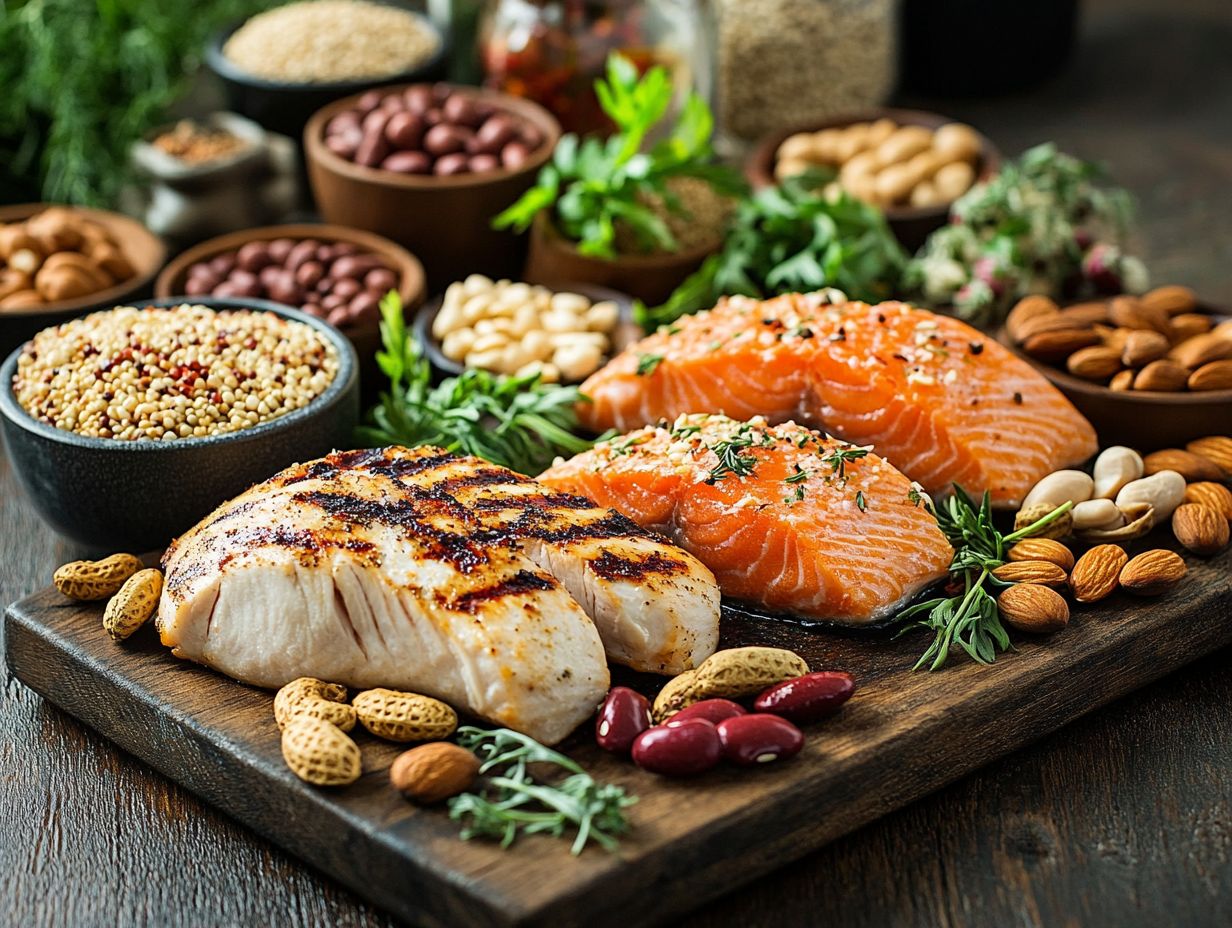
Animal-based proteins, found in meat, poultry, fish, and dairy, are celebrated for their high protein quality and complete amino acid profiles.
Plant-based proteins, derived from legumes, nuts, and grains, deliver a wealth of nutrients and health benefits, though they may require a bit of planning to ensure you re getting enough protein.
Both protein types are vital to a balanced diet, each with unique advantages and disadvantages. For instance, animal proteins often come packed with essential nutrients like vitamin B12 and heme iron, which are crucial for energy and cognitive function.
Plant-based proteins can lower the risk of chronic diseases, such as heart disease and diabetes, thanks to their richness in fiber, antioxidants, and health-promoting phytonutrients.
Don t wait! Start combining different protein sources today for optimal health. To boost your protein intake, consider incorporating a mix of foods from both categories while paying attention to portion sizes and ensuring variety in your meals.
Sources of Protein
Knowing where to find protein is essential for your health every day! Both animal and plant-based foods provide unique nutritional profiles and health benefits, catering to various dietary preferences and needs.
By exploring these options, you can make informed choices that align with your lifestyle and health goals.
Animal Sources
Animal sources of protein, such as meat, poultry, fish, eggs, and dairy products, are revered for their high protein quality and efficiency in supplying essential amino acids vital for muscle building and overall health.
These protein-rich foods provide an array of micronutrients, including iron, zinc, and B vitamins, which are essential for various bodily functions. For example, fish is packed with omega-3 fatty acids that promote heart health, while poultry often contains less saturated fat compared to red meat.
It’s crucial to approach consumption thoughtfully. Excessive intake of red and processed meats may elevate the risk of chronic diseases, including heart disease and certain types of cancer. By maintaining a balanced diet that embraces diverse protein sources, you can significantly enhance your nutritional profile and overall well-being.
Explore your protein options today and make choices that support your health!
Plant Sources
Plant sources of protein include legumes, nuts, quinoa, and tofu. These foods provide essential nutrients and numerous health benefits.
They are crucial for a balanced diet, especially for those who follow plant-based lifestyles.
Incorporating these diverse protein sources can significantly elevate your overall nutritional profile. For instance, legumes like lentils and chickpeas shine with their high fiber content, helping to stabilize blood sugar levels.
Nuts provide healthy fats and antioxidants that support heart health. Quinoa, often celebrated as a superfood, boasts a complete amino acid profile a rarity in the plant kingdom making it an excellent choice for muscle recovery.
Tofu is a versatile staple that easily blends into stir-fries or smoothies.
To ensure you re getting a complete amino acid intake, it s essential to mix different plant proteins. Pairing rice and beans, for instance, can maximize the nutritional benefits of your plant-based diet.
Benefits of Protein
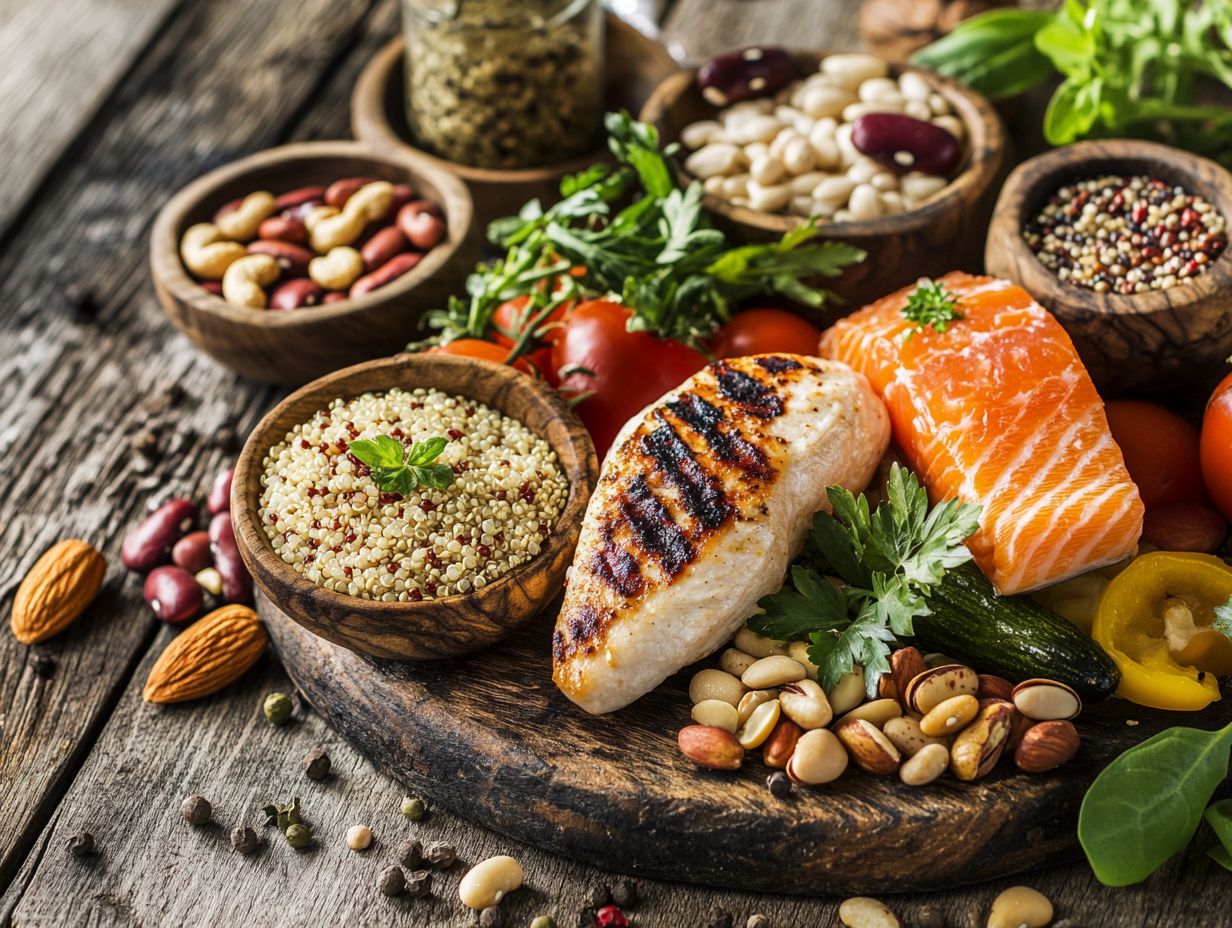
The benefits of protein go far beyond just building muscle; they play a vital role in weight management, metabolic health, and overall wellness. Protein becomes a key element of a balanced diet that supports various bodily functions and mitigates health risks linked to protein deficiency.
Start embracing protein in your diet today! It can drastically enhance your well-being and contribute to a healthier lifestyle.
Muscle Building and Repair
Protein is essential for building and repairing muscle. It provides the critical building blocks necessary for protein synthesis, which is vital for maintaining and increasing muscle mass especially if you re active or engaged in resistance training.
This intricate biochemical process involves translating messenger RNA into amino acids. These amino acids are then assembled into proteins that are crucial for muscle recovery after exercise. Your dietary protein sources like lean meats, dairy products, legumes, and plant-based options such as quinoa and tofu not only support muscle health but also enhance the efficiency of this synthesis.
Take whey protein, for example. Its rapid digestion rate means it can quickly boost your recovery. On the other hand, casein digests more slowly, offering a steady release of amino acids over time.
By incorporating a variety of these protein sources, you ensure that you receive a comprehensive amino acid profile, optimizing your muscle repair and growth.
Weight Management
Protein consumption is intricately linked to effective weight management, acting as a powerful ally in promoting satiety, preserving muscle mass during weight loss, and boosting your metabolic rate. This makes it an essential nutrient for anyone striving for weight control.
By incorporating more protein into your daily meals, you can significantly impact your body composition and overall health. Many individuals aiming to shed excess pounds discover that high-protein diets not only suppress their appetite but also enhance their body s calorie-burning capabilities.
Maintaining lean muscle mass is vital, especially since it helps prevent the metabolic slowdown often encountered during weight loss. The thermic effect of protein surpasses that of fats or carbohydrates, meaning your body expends more energy during its digestion and absorption.
Therefore, prioritizing protein-rich foods can serve as a strategic approach to fostering long-term wellness and achieving sustainable weight management.
Other Health Benefits
Beyond just building muscle and managing weight, protein brings an impressive array of health benefits to the table. It plays a key role in lowering the risk of chronic diseases like cardiovascular issues and diabetes, underscoring its importance in a balanced diet while addressing food insecurity.
Research indicates that ensuring you get enough protein can help regulate blood sugar levels. This reduces the likelihood of insulin resistance a vital step in preventing type 2 diabetes. Embracing a high-protein diet enhances heart health by improving cholesterol levels and lowering blood pressure, both critical factors in the fight against heart disease.
By ensuring access to protein-rich foods, you not only elevate your own dietary choices but also uplift vulnerable populations grappling with food insecurity. This shift enhances overall health and enables individuals to make informed nutritional decisions, ultimately fostering a healthier community that prioritizes well-being.
Frequently Asked Questions
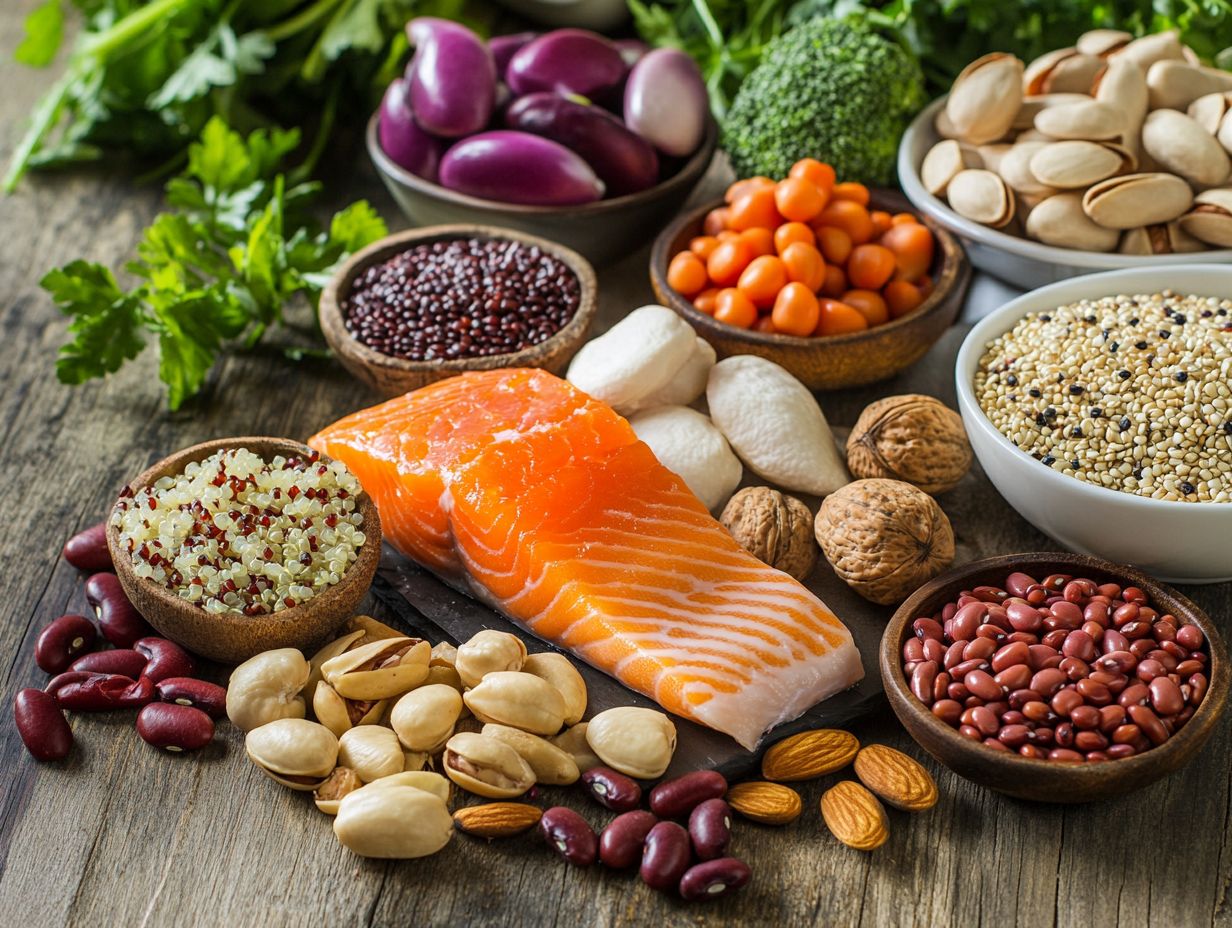
Here are some frequently asked questions about protein:
What are the different types of protein?
There are three main types of protein: complete, incomplete, and complementary. Complete proteins contain all essential amino acids and are found in animal sources like meat, dairy, and eggs. Incomplete proteins lack one or more essential amino acids and are found in plant sources like beans, grains, and nuts. Complementary proteins are a combination of two or more incomplete proteins that together provide all essential amino acids.
What are some common sources of protein?
Animal sources like chicken, fish, and beef are popular options for protein. However, plant sources like beans, lentils, tofu, and quinoa also provide a good amount of protein. Some dairy products like milk, cheese, and yogurt are also high in protein.
What are the benefits of consuming protein?
Protein is essential for building and repairing tissues! It helps in making enzymes and hormones, and it maintains strong bones and muscles. Additionally, protein aids in weight management by keeping you feeling full and satisfied, and it can improve exercise performance and recovery.
How much protein should I consume in a day?
The recommended daily intake of protein varies based on factors like age, gender, and activity level. Most adults need about 0.8 grams of protein for every kilogram they weigh. So, a 150-pound person would need around 55 grams of protein per day. Athletes and individuals looking to build muscle may need more.
Can you consume too much protein?
Yes, consuming excessive amounts of protein can be harmful to your health. It can strain your kidneys and liver, lead to weight gain, and increase your risk of heart disease and certain types of cancer. It’s important to consume protein in moderation and balance it with other essential nutrients.
Can I get enough protein if I follow a vegetarian or vegan diet?
Absolutely! While animal sources may be the most well-known sources of protein, there are plenty of plant-based options that provide a good amount of protein, such as tofu, tempeh, lentils, beans, and quinoa. With the right choices, you can easily meet your protein needs on a plant-based diet!



